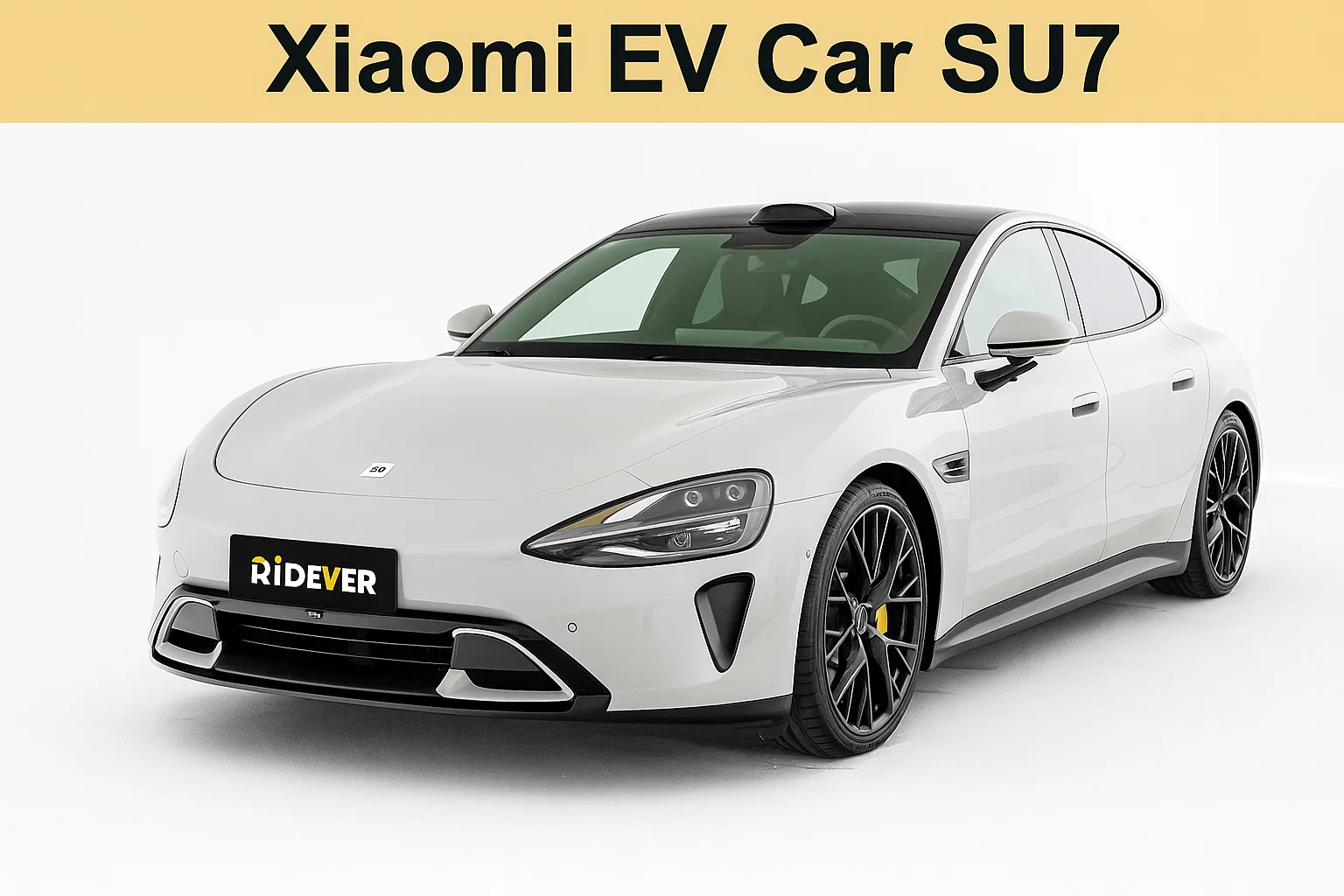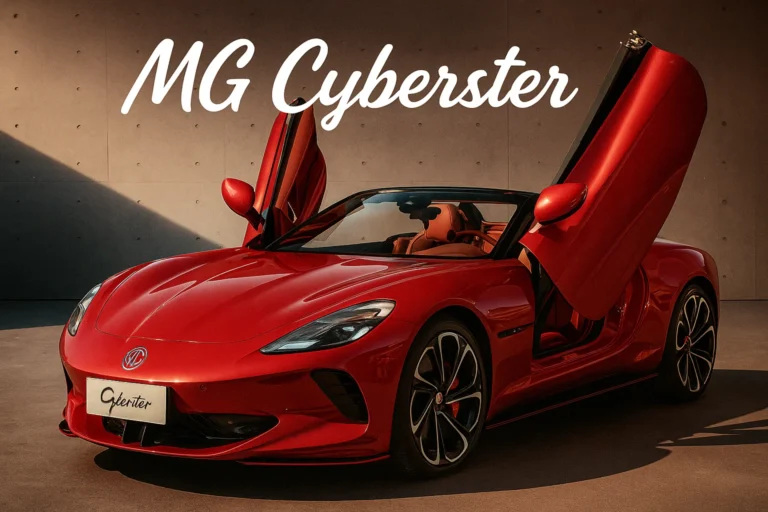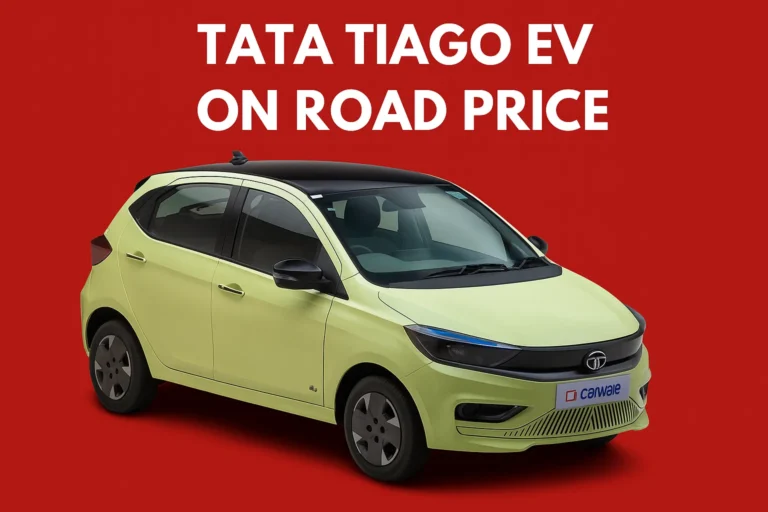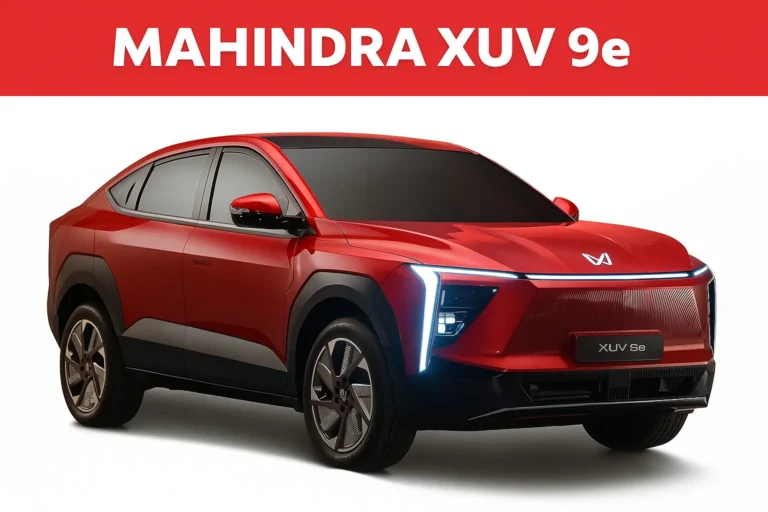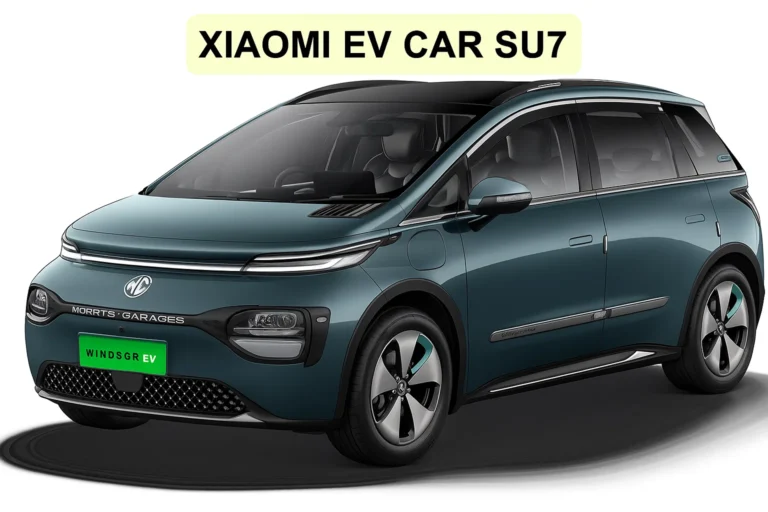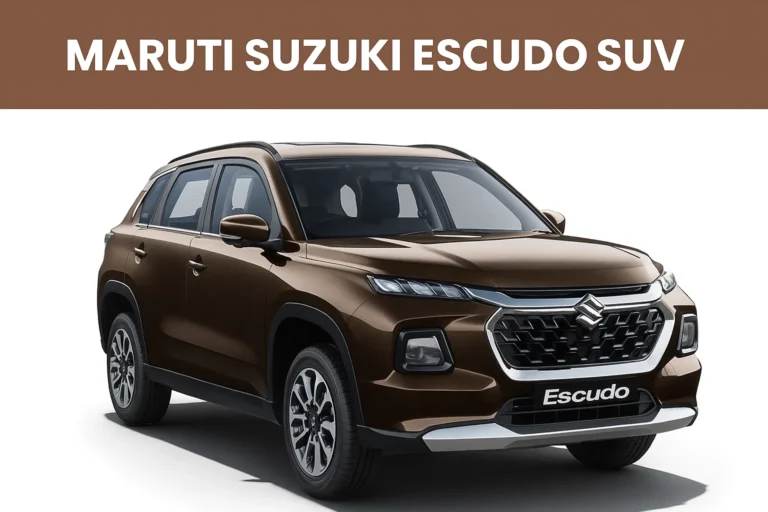Xiaomi EV Car SU7 2025 On-Road Price, Range, and Full Specs
Xiaomi is a brand we usually connect with smartphones, TVs, and electronics. But now, Xiaomi has taken a bold step into the electric vehicle (EV) world. Their first-ever car, the Xiaomi SU7, is a fully electric sedan designed to compete with Tesla, BYD, and other premium EV makers.
The SU7 is not just another car – it’s a smart EV powered by Xiaomi’s software ecosystem (HyperOS), which means you can expect smart connectivity, AI-powered features, and smooth integration with Xiaomi devices.
The big question is: Can Xiaomi really make a successful EV, or will it be just another experiment? Let’s dive into every detail.
Overview of Xiaomi SU7 EV
The Xiaomi SU7 is a sedan-style electric car. It is Xiaomi’s first official car and marks the company’s entry into the automobile industry.
- Body type: Sedan (4-door)
- Segment: Premium EV sedan
- Market: Launched first in China, expected to expand globally later
- Target audience: Tech enthusiasts, EV lovers, Xiaomi ecosystem fans
Xiaomi is not treating SU7 as just a car. They call it a “smart mobility device”, which shows their focus on technology as much as on driving.
Xiaomi SU7 Design & Exterior
When you first look at the SU7, it feels like a mix of sporty styling and futuristic touches.
- Aerodynamics: The car is designed to cut through the air smoothly, improving efficiency.
- Headlights: Slim, LED lighting setup gives it a sharp look.
- Body curves: Smooth lines on the sides, giving it a luxury sedan appeal.
- Wheels: Alloy wheels with a modern design, size expected around 19–20 inches.
Many people say the design is somewhat inspired by the Porsche Taycan, but with Xiaomi’s personal touch.
Interior & Comfort
Inside the cabin, Xiaomi focused on minimalist design + high-tech features.
- Dashboard: Clean dashboard with a large touchscreen display in the center.
- Infotainment: Runs on Xiaomi HyperOS, the same system used in their latest phones, tablets, and smart devices.
- Comfort: Premium leather seats, spacious cabin, and good rear legroom.
- Connectivity: Wireless phone charging, seamless integration with Xiaomi smartphones and tablets.
- Driver display: A digital instrument cluster with customizable themes.
In short, the interior feels like a luxury lounge, not just a car cabin.
Performance & Battery Specs
Xiaomi SU7 is not only about looks – it is also about power and performance.
- Battery pack: Around 100 kWh (expected)
- Motor power: Two versions – single motor (RWD) and dual motor (AWD)
- Acceleration: 0–100 km/h in 2.78 seconds (for the top variant)
- Top speed: Around 265 km/h
- Range: Between 700 km and 1000 km (depending on variant)
This makes SU7 one of the fastest EV sedans in its category.
Charging Options
Xiaomi SU7 supports ultra-fast charging.
- Fast charging: Can add 220 km of range in just 5 minutes.
- Full charge time: Around 25–30 minutes with a supercharger.
- Home charging: Normal wall charging available, but much slower.
This means you don’t need to worry about range anxiety if you have access to fast-charging stations.
Variants of Xiaomi SU7
Xiaomi is expected to launch multiple variants:
- Xiaomi SU7 (Base) – single motor, affordable pricing.
- Xiaomi SU7 Pro – extended range, more features.
- Xiaomi SU7 Max – dual motor, top performance, premium price.
Price & Availability
- China Price (expected): Starts at ₹27–30 lakh equivalent
- India On-Road Price (expected): ₹35–40 lakh for the base model, up to ₹55 lakh for Max version.
- Availability: First in China (2024), international launch may follow in 2025–26.
Technology & Smart Features
The strongest point of Xiaomi SU7 is technology.
- HyperOS Integration: The car uses Xiaomi’s HyperOS, which connects seamlessly with phones, watches, tablets, and even smart homes.
- AI Driving Assistance: Semi-autonomous driving features (similar to Tesla Autopilot).
- Voice Assistant: Built-in Xiaomi AI voice assistant.
- Mobile App: Control car features from your phone – lock/unlock, climate control, charging status.
Basically, the car is a moving smartphone.
Mileage / Range per Charge
- Base model range: 650–700 km
- Max model range: Up to 1000 km
- Real-world range: Likely around 550–800 km depending on driving conditions.
This puts SU7 in direct competition with Tesla Model 3 and BYD Seal.
Safety Features
Safety is also a priority in the SU7.
- Multiple airbags
- ABS + ESC (Electronic Stability Control)
- ADAS (Advanced Driver Assistance Systems)
- Lane-keeping assist, adaptive cruise control, blind spot detection
- Strong crash safety structure
Government EV Incentives
If Xiaomi launches SU7 in India, buyers may get benefits under:
- FAME II subsidy (up to ₹1.5 lakh on EVs)
- State-level incentives (extra discounts in Delhi, Maharashtra, Gujarat, etc.)
- Lower road tax + registration fees
This could make SU7 more affordable.
Comparison with Rivals
| Car | Range | 0–100 km/h | Price (approx.) |
|---|---|---|---|
| Xiaomi SU7 | 700–1000 km | 2.78 sec | ₹35–55 lakh |
| Tesla Model 3 | 600–650 km | 3.1 sec | ₹45–55 lakh |
| BYD Seal | 650–700 km | 3.8 sec | ₹40–50 lakh |
| Hyundai Ioniq 6 | 610 km | 4.5 sec | ₹50+ lakh |
Clearly, Xiaomi SU7 is very competitive.
14. Pros and Cons of Xiaomi SU7
Pros
- Futuristic design
- Powerful performance
- Long range (up to 1000 km)
- Advanced HyperOS connectivity
- Competitive pricing
Cons
- Xiaomi is new in the auto industry
- Charging infra in India still weak
- Long-term reliability unknown
- After-sales service network needs to be built
Who Should Buy Xiaomi SU7?
This car is best for:
- Tech lovers who want a futuristic EV.
- Xiaomi fans who already use its ecosystem.
- Premium buyers looking for a Tesla alternative.
- Urban drivers who want luxury + performance.
FAQs
Expected between ₹35–55 lakh depending on variant.
Around 650–1000 km per charge.
Not confirmed, but expected after 2025.
On paper, it matches or even beats Tesla in range and price. Real-world performance will decide.
Conclusion
The Xiaomi SU7 EV is not just a car – it’s a tech device on wheels. With its long range, futuristic design, smart features, and competitive price, Xiaomi is clearly trying to disrupt the EV market just like it disrupted the smartphone industry.
If Xiaomi can deliver good service support and long-term reliability, the SU7 could be a game-changer in India and worldwide.
Final Thought: The SU7 proves that the future of cars is not just about engines, but about software, intelligence, and connectivity.

